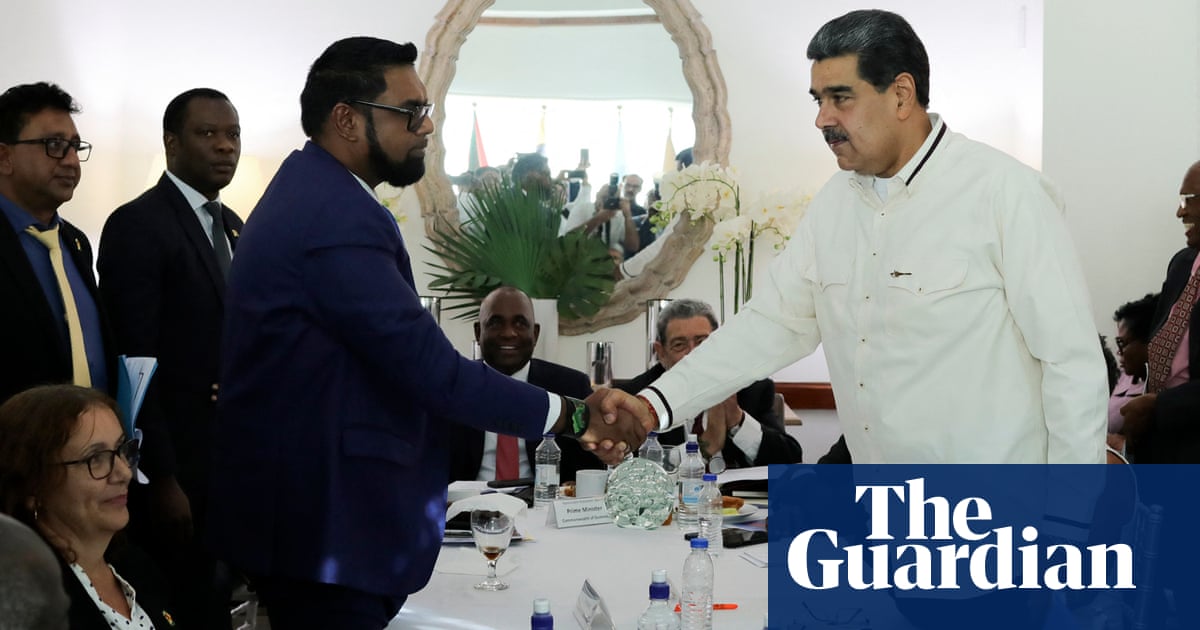
Libya’s chronic political instability has been exposed, with the country’s foreign minister, Najla El-Mangoush, suspended from office and banned from leaving the country by the president, only for the disciplinary action to be rejected by the prime minister.
The power struggle comes days before a major conference in Paris at which world powers hope to speed up the departure of foreign mercenaries and troops from Libya ahead of planned December presidential and parliamentary elections, which are hanging in the balance.
Mangoush, one of the few women at the top of Libya’s male -dominated, and sometimes violent politics, was suspended by the country’s interim president, Mohamed al-Menfi, a former diplomat with a support base in the east, “as a precaution” to investigate “administrative violations”.
She has been accused of carrying out foreign policy without coordination with the Presidential Council, including by suggesting in an interview with the BBC last week that a former Libyan intelligence officer implicated in the Lockerbie bombing might be extradited to the US.
Mangoush gave a commitment only that the extradition would be examined, not carried out, but her remarks were enough for her political opponents to try to oust her, which they have been trying to do off and on since her surprise appointment in February.
The investigation is due to last as long as 14 days so the ruling would in effect debar her from travelling to the Paris conference hosted by Emmanuel Macron and at which the US vice-president, Kamala Harris, is due to attend.
Since Muammar Gaddafi was overthrown and killed by western-backed rebels in 2011, Libya has been unable to form a government that can unite over the division of resources between the west, east and south of the country. During a 2014-20 civil war, the country was divided east and west between rival governments and warlords.
The suspension of Mangoush by Menfi was supported by 80 members of the House of Representatives, the eastern-based parliament. But the prime minister, Abdul Hamid Dbeibeh, said the power to appoint or suspend ministers in his government was his exclusive preserve.
Libya is ruled by an interim government following the election of the Presidential Council in February by a UN-appointed dialogue forum. Menfi and Dbeibeh were elected by the 75-strong forum on a joint ticket, but always represented different political interests. Their election has been dogged by allegations of bribery.
The sole purpose of the interim government, in theory, was to provide services and prepare for presidential and parliamentary elections on 24 December, but the populist-inclined prime minister has been behaving as if he would wish to remain in power for longer, something most western powers have been resisting as they try to maintain momentum to the vote in six weeks. Dbeibeh was on Sunday reported to be considering standing for president.
The elections would, for the first time in Libya’s history, provide the country with a mandated legitimate unified government in which there was clear division of powers between a parliament and a directly elected president, a new post in Libyan politics and the parliament.
But the path to elections has been obstructed by existing political institutions reluctant to relinquish power and patronage, as well as by genuine fears that elections in such a divided country, in which militia and mercenaries proliferate, will not heal the country’s divisions by concluding with a stable, universally recognised government.
Mangoush, who has succeeded in presenting a different face internationally to Libya’s largely male-led politics and can claim credit for organising an earlier stability conference in Tripoli attended by foreign ministers from Europe, has called for at least 20% of mercenaries and foreign forces to leave the country by 24 December.
Proposals for mercenaries to leave the country have made some progress, though Turkey is insisting it is not part of this process since its forces are there at the invitation of the government.
In an attempt to give the impression that the momentum to elections is unstoppable, the head of the High National Elections Commission, Imad al-Sayeh, announced that nominations for the presidency would open on Monday and continue until 22 November, while parliamentary elections nominations would be available until 7 December. He also said Libyans could go to polling stations in schools to collect voting cards.
Mangoush was reported as saying in her BBC interview that “positive outcomes are coming” in the case of Abu Agila Mohammad Masud, alleged to have been a top bomb-maker for Gaddafi. The US has been seeking his extradition for at least two years, and he is aleady in jail in Libya on unrelated charges.
She added the process would need to respect Libyan laws, a caveat that left it unclear what Libyan would ultimately accept his extradition. It was also claimed by her office that she did not name any individual in the interview.
Mangoush said the Libyan government “understands the pain and sadness” of the victims’ families but “needs to respect the laws”. The US and Libya were collaborating on the case, she said, and it was progressing.
A $2.7bn compensation agreement signed by Gaddafi’s regime did not protect Libyan citizens from future prosecution, the US argues. It merely served to lift sanctions on the Libyan government and immunise the state from any other civil claims.
The deadly attack in 1988 on Pan Am Flight 103 from London to New York killed 270 people, including 190 Americans, when it came down over Lockerbie in Scotland.












